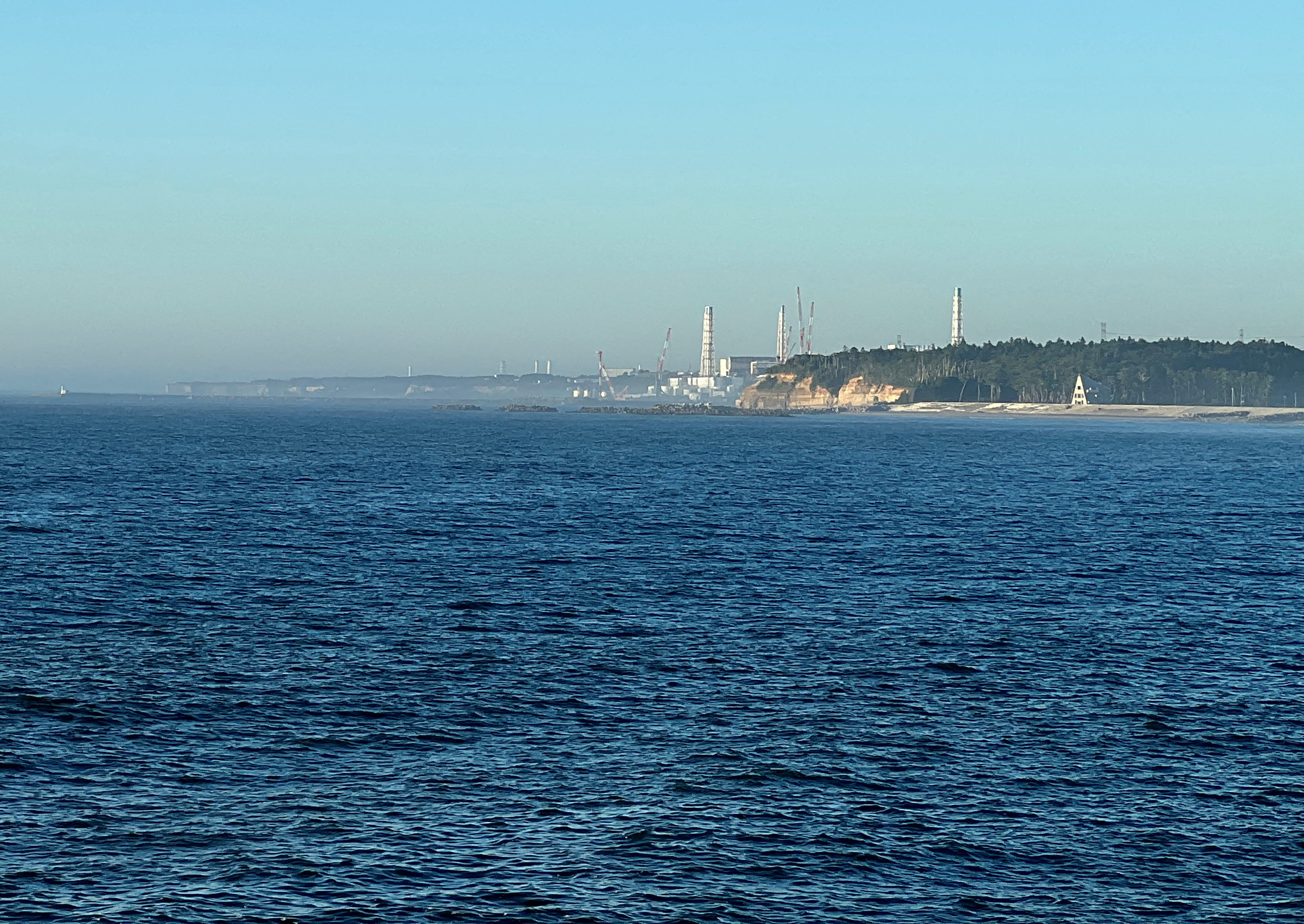
A view of the Fukushima Daiichi nuclear power plant after it began releasing treated radioactive water into the Pacific Ocean, as seen from the nearby fishing port of Okido in the town of Nami, Fukushima Prefecture, Japan, August 25, 2023. REUTERS/Tom Bateman/File photo Obtain licensing rights
TOKYO (Reuters) – Japan said on Monday it had received several “extremely unfortunate” harassing phone calls, most likely from China, after radioactive water from the Fukushima nuclear power plant leaked into the Pacific Ocean.
The Chinese embassy in Tokyo said it had also received nuisance calls from Japan.
Japan began draining water on Thursday in a major step towards decommissioning the Fukushima plant, which suffered three meltdowns after it was hit by a tsunami in 2011 in the world’s worst nuclear plant disaster since Chernobyl 25 years ago.
“A lot of harassing phone calls believed to come from China are happening in Japan,” Chief Cabinet Secretary Hirokazu Matsuno and chief spokesperson for the government told a regular briefing. “These developments are very unfortunate and we are concerned.”
Japan’s foreign ministry said such calls prompted Deputy Foreign Minister Masataka Okano to summon the Chinese ambassador.
A Chinese Foreign Ministry spokesman said the ministry was not aware of the matter when asked about the harassment allegations at a regular news conference on Monday.
But the Chinese embassy in Tokyo issued a statement saying it had made firm representations to Japan about the Chinese embassy and consulates in Japan receiving “a large number of disturbing calls from Japan.”
Ambassador Wu Jianghao said, according to an embassy statement, that the calls caused “serious interference with the normal work of the embassy and consulates.”
Japan’s foreign ministry said in a statement that harassment calls also occurred at Japanese facilities in China, and urged the government to ensure the safety of Japanese citizens.
Prime Minister Fumio Kishida said the government had “strongly” asked Beijing to urge its citizens to act “calmly and responsibly” after reported incidents of stone-throwing at a Japanese school and the Japanese embassy.
A city official said the Fukushima City Council began receiving calls with the Chinese code +86 on Thursday, and the number of such calls exceeded 200 the next day, flooding phone lines and disrupting the normal work of city employees.
He added that on the same day, primary and middle schools in the city, located 60 km northwest of the idled factory, received 65 similar calls.
He said one caller commented, “Why are you releasing polluted water into the Pacific Ocean, which is a sea for everyone?”
Local media said other municipalities, hotels and restaurants have also received such calls.
An executive at one of the Japanese restaurant chain operators said that branches in central Tokyo receive frequent calls from people speaking Chinese from number +86. The executive, who spoke on condition of anonymity for fear of further harassment, said the company had reported the incident to police.
In China, a stone was thrown at a Japanese school in the coastal city of Qingdao on Thursday, according to the Consulate General of Japan in the city.
When asked about the incident in Qingdao and the harassment calls, Chinese Foreign Ministry spokesperson Wang Wenbin defended China’s record of keeping foreigners safe.
“China has always safeguarded the safety, rights and lawful interests of foreign nationals in China in accordance with law,” Wang said.
The Fukushima plant operator, Tokyo Electric Power Corporation (T9501.T) (Tepco), filters the contaminated water to remove the isotope, leaving only tritium, a radioactive isotope of hydrogen that is difficult to separate.
China said Japan had not demonstrated that the water would be safe and issued a blanket ban on all aquatic products coming from Japan.
(Reporting by Kiyoshi Takenaka and Maki Shiraki in Tokyo and Martin Pollard in Beijing; Reporting by Mohamed for The Arabic Bulletin) Editing by Jacqueline Wong, Mark Heinrichs, Raju Gopalakrishnan and Nick McPhee
Our standards: Thomson Reuters Principles of Trust.

“Lifelong food lover. Avid beeraholic. Zombie fanatic. Passionate travel practitioner.”
